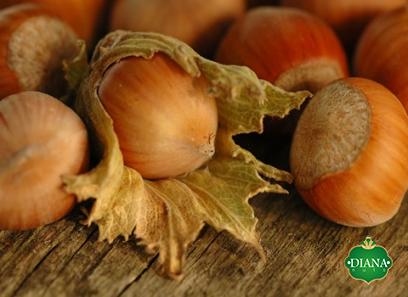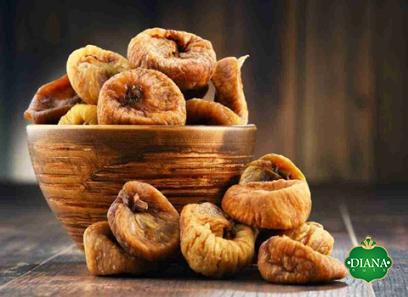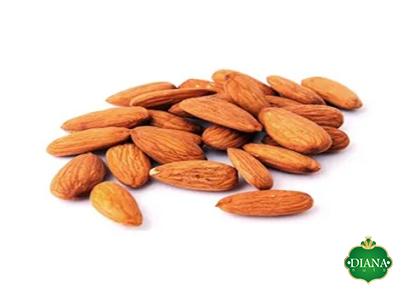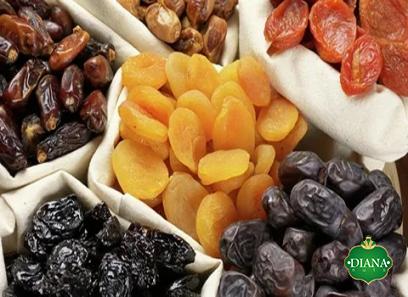New Zealand is renowned for its flourishing agricultural sector, and the production of nuts is no exception. With its favorable climate and rich soil, the country boasts a growing industry for nuts in shell. This article aims to provide an overview of the nut industry in New Zealand, focusing on key varieties, cultivation practices, market prospects, and notable players in the sector. Key Nut Varieties: 1. Macadamia Nuts: Macadamia trees thrive in regions with mild temperatures, including the Northland and Bay of Plenty. These nuts are highly valued for their rich flavor, crunchy texture, and nutritional content, making them a popular choice among consumers and a profitable crop for growers. 2. Almonds: Although almonds are commonly associated with warmer climates, certain regions of New Zealand, particularly Canterbury and Hawke’s Bay, offer suitable conditions for almond cultivation. Almonds are versatile, nutritious, and in high demand for various culinary applications, which makes their cultivation a beneficial option for local farmers. 3. Walnuts: New Zealand’s temperate climate and fertile soil provide ideal conditions for growing high-quality English and Persian walnut varieties. Walnuts are not only rich in omega-3 fatty acids, antioxidants, and essential nutrients but also have a growing market, both domestically and internationally. Cultivation Practices: Nuts in shell cultivation in New Zealand usually involves the following practices: 1. Orchard Establishment: Selecting a suitable site is crucial, considering factors such as soil quality, drainage, and access to water. Nurseries specializing in nut tree propagation supply seedlings to farmers for orchard establishment. 2. Tree Maintenance: Pruning, fertilizing, pest control, and irrigation are essential for the healthy growth and optimal production of nut trees. Nut orchards typically require regular maintenance to ensure their longevity and productivity. 3. Harvesting: Depending on the variety, nuts are harvested at different times during the year. This process often involves shaking the tree to release the nuts, followed by collection, removal of husks or shells, and subsequent drying and storage. Market Prospects: The demand for nuts in shell has been steadily increasing both domestically and globally. New Zealand’s nut industry has the potential to tap into this growing market due to its reputation for exceptional product quality and food safety standards. Some key factors influencing the market prospects for nuts in shell include: 1. Health-conscious Consumer Trends: The increasing awareness about the health benefits associated with consuming nuts has contributed to an expanding consumer base. Nuts, being a rich source of protein, healthy fats, and various vitamins and minerals, are favored by health-conscious individuals. 2. Culinary Applications: Nuts in shell are widely used in the culinary industry for their unique flavors and textures. They find applications in confectionery, baking, garnishing, and even as standalone snacks. 3. Export Opportunities: New Zealand’s reputation for clean and green agricultural practices positions it favorably in the international nut market. The demand for premium-quality nuts, particularly macadamias and walnuts, from global markets like Asia, North America, and Europe presents lucrative export opportunities for New Zealand nut producers. Industry Players: Several notable players contribute to the thriving nut industry in New Zealand. These include: 1. The Nut Shop: Established in 1997, The Nut Shop is a family-owned and operated business specializing in the roasting and packaging of nuts. They offer a wide range of nuts in shell, including macadamias and almonds. 2. Leading Nut Company: An industry leader in the nut sector, the Leading Nut Company focuses on growing and exporting macadamia nuts, pecans, and almonds from New Zealand. They pride themselves on sustainable farming practices and premium product quality.

nut
 3. Puriri Park Eco Retreat: Located in the Bay of Plenty, Puriri Park Eco Retreat is known for its organic macadamia nut orchard. They offer lodging, tours, and workshops, showcasing their commitment to sustainable agriculture and eco-tourism. Conclusion: New Zealand’s nut industry, with a focus on nuts in shell, has witnessed substantial growth in recent years, driven by increasing consumer demand and favorable agricultural conditions. The country’s production of macadamias, almonds, walnuts, and other nut varieties has attracted attention both domestically and in international markets. As the industry continues to expand, New Zealand’s nut producers are well-positioned to meet the growing demand for high-quality nuts in shell, ensuring a sustainable and profitable future for the sector.1. Market Analysis and Trends: The global market for nuts in shell has witnessed significant growth in recent years, driven by factors such as increasing health-consciousness among consumers and the versatility of nuts in various culinary applications. New Zealand, with its favorable agricultural conditions and commitment to sustainable farming practices, is well-positioned to capitalize on this market trend. The demand for premium-quality nuts, such as macadamias, almonds, and walnuts, remains high, both domestically and internationally. This provides excellent business opportunities for New Zealand nut producers to cater to a diverse range of consumer preferences. 2. Competitive Landscape: The nut industry in New Zealand is characterized by a competitive landscape with several established players vying for market share. The Nut Shop, a family-owned business specializing in the roasting and packaging of nuts, has built a loyal customer base with its high-quality, locally sourced products. The Leading Nut Company, on the other hand, has carved a niche for itself in the export market, leveraging its sustainable farming practices and focus on premium product quality. These and other players in the industry contribute to the vibrant and thriving nut sector in New Zealand. 3. Opportunities for Innovation: In addition to traditional nut varieties, there is room for innovation and diversification within the nut industry in New Zealand. Farmers have the opportunity to explore the cultivation of lesser-known nuts, such as hazelnuts and chestnuts, which have been gaining popularity due to their culinary applications and health benefits. Innovations in value-added nut products, including flavored nuts, nut butter, and nut-based snacks, can also drive growth and capture niche markets. 4. Export Potential: New Zealand’s reputation for clean and green agricultural practices, coupled with its focus on quality, opens up export opportunities for the country’s nut producers.
3. Puriri Park Eco Retreat: Located in the Bay of Plenty, Puriri Park Eco Retreat is known for its organic macadamia nut orchard. They offer lodging, tours, and workshops, showcasing their commitment to sustainable agriculture and eco-tourism. Conclusion: New Zealand’s nut industry, with a focus on nuts in shell, has witnessed substantial growth in recent years, driven by increasing consumer demand and favorable agricultural conditions. The country’s production of macadamias, almonds, walnuts, and other nut varieties has attracted attention both domestically and in international markets. As the industry continues to expand, New Zealand’s nut producers are well-positioned to meet the growing demand for high-quality nuts in shell, ensuring a sustainable and profitable future for the sector.1. Market Analysis and Trends: The global market for nuts in shell has witnessed significant growth in recent years, driven by factors such as increasing health-consciousness among consumers and the versatility of nuts in various culinary applications. New Zealand, with its favorable agricultural conditions and commitment to sustainable farming practices, is well-positioned to capitalize on this market trend. The demand for premium-quality nuts, such as macadamias, almonds, and walnuts, remains high, both domestically and internationally. This provides excellent business opportunities for New Zealand nut producers to cater to a diverse range of consumer preferences. 2. Competitive Landscape: The nut industry in New Zealand is characterized by a competitive landscape with several established players vying for market share. The Nut Shop, a family-owned business specializing in the roasting and packaging of nuts, has built a loyal customer base with its high-quality, locally sourced products. The Leading Nut Company, on the other hand, has carved a niche for itself in the export market, leveraging its sustainable farming practices and focus on premium product quality. These and other players in the industry contribute to the vibrant and thriving nut sector in New Zealand. 3. Opportunities for Innovation: In addition to traditional nut varieties, there is room for innovation and diversification within the nut industry in New Zealand. Farmers have the opportunity to explore the cultivation of lesser-known nuts, such as hazelnuts and chestnuts, which have been gaining popularity due to their culinary applications and health benefits. Innovations in value-added nut products, including flavored nuts, nut butter, and nut-based snacks, can also drive growth and capture niche markets. 4. Export Potential: New Zealand’s reputation for clean and green agricultural practices, coupled with its focus on quality, opens up export opportunities for the country’s nut producers.
Specifications of nut
 The growing demand for premium nuts in markets such as Asia, North America, and Europe presents a lucrative avenue for expansion. Investing in international market research, establishing distribution channels, and securing certifications for food safety and quality assurance will be essential steps for nut producers seeking to tap into the global export market. 5. Sustainable Farming Practices: Sustainability is a key consideration in the nut industry, as consumers increasingly prioritize ethically produced and environmentally friendly products. New Zealand nut producers have embraced sustainable farming practices, including organic cultivation methods and minimal use of pesticides. These practices not only appeal to conscious consumers but also contribute to the long-term viability and resilience of the nut industry. 6. Collaborative Initiatives: Collaboration and information sharing within the nut industry can provide mutual benefits to growers, marketers, and other stakeholders. Establishing industry associations or cooperatives can facilitate knowledge exchange, promote best practices, and collectively address common challenges. Shared resources, such as research and development, marketing campaigns, and distribution networks, can lead to improved efficiency and competitiveness in the nut sector. 7. Consumer Education and Promotion: Educating consumers about the nutritional benefits of nuts in shell and their diverse culinary uses can help drive demand and support market growth. Nut producers can collaborate with nutritionists, health organizations, and culinary experts to create awareness campaigns, cooking demonstrations, and recipe collaborations. Additionally, leveraging digital platforms and social media can be an effective way to reach consumers and create a buzz around New Zealand’s high-quality nut products. 8. Research and Development: Continued investment in research and development is crucial for the ongoing success of the nut industry in New Zealand. Research initiatives can focus on improving cultivation techniques, developing disease-resistant varieties, optimizing post-harvest processes, and exploring innovative uses for nut by-products. Collaborations with research organizations, universities, and government agencies can provide valuable insights and foster innovation within the sector. 9. Government Support and Policies: Government support and favorable policies play a significant role in the development and sustainability of the nut industry. Nut producers can engage with government agencies, such as the Ministry for Primary Industries, to ensure regulatory compliance, access funding opportunities, and participate in industry-specific initiatives aimed at promoting growth and export opportunities. Lobbying for policies that benefit the nut industry, such as tariff reduction or elimination in target markets, can also facilitate market access and growth.
The growing demand for premium nuts in markets such as Asia, North America, and Europe presents a lucrative avenue for expansion. Investing in international market research, establishing distribution channels, and securing certifications for food safety and quality assurance will be essential steps for nut producers seeking to tap into the global export market. 5. Sustainable Farming Practices: Sustainability is a key consideration in the nut industry, as consumers increasingly prioritize ethically produced and environmentally friendly products. New Zealand nut producers have embraced sustainable farming practices, including organic cultivation methods and minimal use of pesticides. These practices not only appeal to conscious consumers but also contribute to the long-term viability and resilience of the nut industry. 6. Collaborative Initiatives: Collaboration and information sharing within the nut industry can provide mutual benefits to growers, marketers, and other stakeholders. Establishing industry associations or cooperatives can facilitate knowledge exchange, promote best practices, and collectively address common challenges. Shared resources, such as research and development, marketing campaigns, and distribution networks, can lead to improved efficiency and competitiveness in the nut sector. 7. Consumer Education and Promotion: Educating consumers about the nutritional benefits of nuts in shell and their diverse culinary uses can help drive demand and support market growth. Nut producers can collaborate with nutritionists, health organizations, and culinary experts to create awareness campaigns, cooking demonstrations, and recipe collaborations. Additionally, leveraging digital platforms and social media can be an effective way to reach consumers and create a buzz around New Zealand’s high-quality nut products. 8. Research and Development: Continued investment in research and development is crucial for the ongoing success of the nut industry in New Zealand. Research initiatives can focus on improving cultivation techniques, developing disease-resistant varieties, optimizing post-harvest processes, and exploring innovative uses for nut by-products. Collaborations with research organizations, universities, and government agencies can provide valuable insights and foster innovation within the sector. 9. Government Support and Policies: Government support and favorable policies play a significant role in the development and sustainability of the nut industry. Nut producers can engage with government agencies, such as the Ministry for Primary Industries, to ensure regulatory compliance, access funding opportunities, and participate in industry-specific initiatives aimed at promoting growth and export opportunities. Lobbying for policies that benefit the nut industry, such as tariff reduction or elimination in target markets, can also facilitate market access and growth.
buy nut
 10. Nut Industry Events and Networking: Attending industry events, trade shows, and networking platforms can provide nut producers with opportunities to showcase their products, learn from industry experts, and establish valuable business connections. Events such as the New Zealand Nut Industry Conference and Trade Show and the New Zealand National Horticultural Fieldays provide a platform for networking, knowledge sharing, and staying abreast of industry trends. 11. Consumer Safety and Quality Assurance: Ensuring consumer safety and maintaining high product quality are paramount for nut producers. Implementing food safety management systems, obtaining relevant certifications (such as Global Food Safety Initiative standards), and conducting regular quality control checks are essential to build trust among consumers and meet regulatory requirements. Producers also need to incorporate traceability systems to track the origin and journey of their products, providing transparency and building consumer confidence. 12. Government Export Assistance Programs: The New Zealand government provides various export assistance programs to support businesses in expanding their international presence. Nut producers can explore initiatives such as the New Zealand Trade and Enterprise (NZTE) services, which offer market intelligence, networking support, and financial assistance for international market development. Engaging with these programs can help businesses navigate the complexities of export regulations, identify new market opportunities, and strengthen their export capabilities. Conclusion: The nut industry in New Zealand, with its diverse range of nut varieties, sustainable farming practices, and focus on quality, is poised for continued growth and success. Nut producers can leverage market trends, tap into export opportunities, embrace innovation, and collaborate within the industry to capture a larger share of the global nut market. With the government’s support, investment in research and development, and consumer education initiatives, New Zealand nut producers can establish themselves as leaders in the sector while maintaining their commitment to sustainability and product excellence.
10. Nut Industry Events and Networking: Attending industry events, trade shows, and networking platforms can provide nut producers with opportunities to showcase their products, learn from industry experts, and establish valuable business connections. Events such as the New Zealand Nut Industry Conference and Trade Show and the New Zealand National Horticultural Fieldays provide a platform for networking, knowledge sharing, and staying abreast of industry trends. 11. Consumer Safety and Quality Assurance: Ensuring consumer safety and maintaining high product quality are paramount for nut producers. Implementing food safety management systems, obtaining relevant certifications (such as Global Food Safety Initiative standards), and conducting regular quality control checks are essential to build trust among consumers and meet regulatory requirements. Producers also need to incorporate traceability systems to track the origin and journey of their products, providing transparency and building consumer confidence. 12. Government Export Assistance Programs: The New Zealand government provides various export assistance programs to support businesses in expanding their international presence. Nut producers can explore initiatives such as the New Zealand Trade and Enterprise (NZTE) services, which offer market intelligence, networking support, and financial assistance for international market development. Engaging with these programs can help businesses navigate the complexities of export regulations, identify new market opportunities, and strengthen their export capabilities. Conclusion: The nut industry in New Zealand, with its diverse range of nut varieties, sustainable farming practices, and focus on quality, is poised for continued growth and success. Nut producers can leverage market trends, tap into export opportunities, embrace innovation, and collaborate within the industry to capture a larger share of the global nut market. With the government’s support, investment in research and development, and consumer education initiatives, New Zealand nut producers can establish themselves as leaders in the sector while maintaining their commitment to sustainability and product excellence.










Your comment submitted.